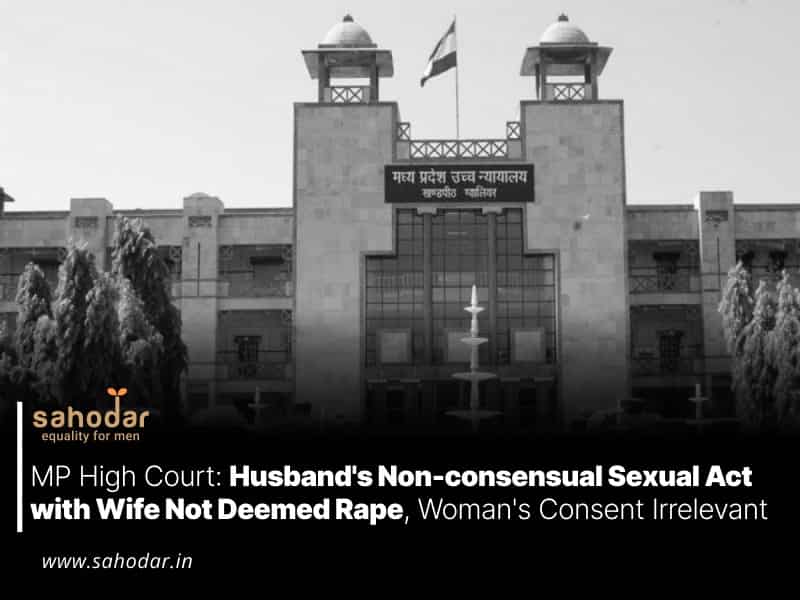Noting the absence of recognition for ‘Marital rape’ as an offense in India, the Madhya Pradesh High Court has stated that any sexual activity, including unnatural intercourse by a husband with his wife, will not constitute rape as the wife’s consent is deemed irrelevant in such scenarios.
Justice Gurpal Singh Ahluwalia, presiding over a bench, affirmed that sexual intercourse or any sexual act by a man with his wife, who is not under the age of fifteen and resides with him within a valid marriage, does not amount to rape.
The Court clarified that the exception to this rule lies in Section 376-B of the Indian Penal Code (IPC), where sexual activity with one’s wife during separate living due to judicial separation or other reasons would qualify as rape.
Regarding Exception 2 of Section 375, the Court emphasized that sexual intercourse or acts between a husband and wife, provided the wife is not under fifteen years old, do not constitute rape.
These observations were made in the context of dismissing a First Information Report (FIR) filed by a wife against her husband, accusing him of, among other things, engaging in unnatural intercourse under Section 377 of the IPC.
It’s important to note that according to Section 375 of the Indian Penal Code (IPC), rape encompasses all forms of sexual assault involving non-consensual intercourse with a woman. However, Exception 2 to Section 375 IPC exempts sexual intercourse between spouses over the age of 15 from being categorized as “rape,” thus preventing prosecution for such acts.
In October 2017, the Supreme Court, in the Independent Thought vs. Union of India (2017) case, interpreted ’15 years’ in Exception 2 to Section 375 as ’18 years’ to bring sex with a minor spouse within the scope of rape.
The case in question involves the wife lodging an FIR against her husband, alleging that he engaged in unnatural intercourse with her on multiple occasions after their marriage.
In challenging the FIR, the husband argued before the High Court that any unnatural intercourse between him and his wife, given their marital status, does not constitute an offense under Section 377 of the IPC.
The High Court’s examination of Section 375(a) of the IPC, as amended by the 2013 Amendment Act, led to the conclusion that penetration by a man’s penis into a woman’s mouth, urethra, or anus constitutes rape. However, the Court emphasized that sexual acts between spouses, provided the wife is not under fifteen years old, do not qualify as rape, citing Exception 2 of Section 375.
The Court referenced a previous decision by the Madhya Pradesh High Court, which stated that after the 2013 amendment to Section 375 IPC (Rape), there is no room for unnatural offenses (per Section 377 IPC) to occur between spouses.
In its ruling, the MP High Court opined that when Section 375 IPC includes all possible forms of penetration by a husband to his wife and consent is immaterial (due to the marital rape exception), Section 377 IPC does not apply when spouses engage in sexual acts.
Consequently, the Court granted the husband’s plea and quashed the FIR against him, having concluded that unnatural intercourse by a husband with his legally wedded wife does not constitute an offense under Section 377 of the IPC.

